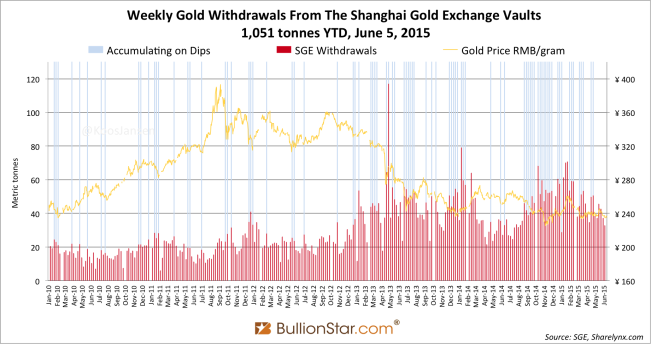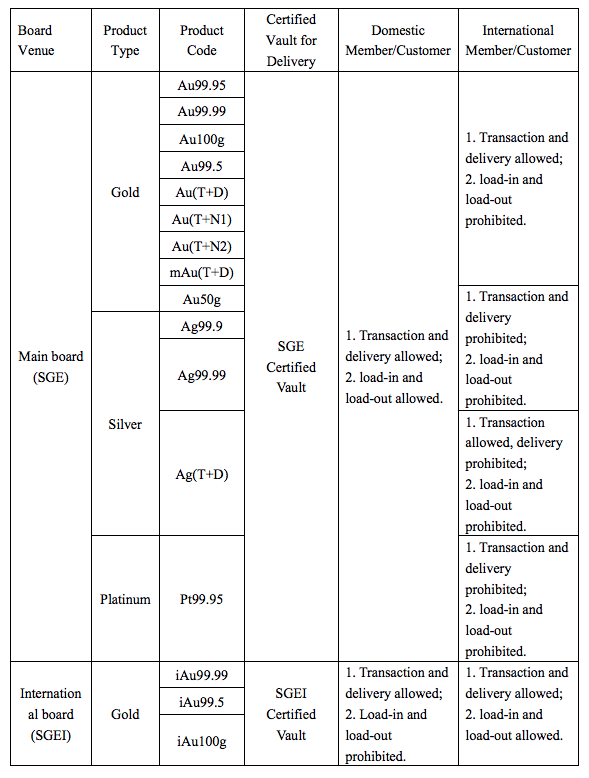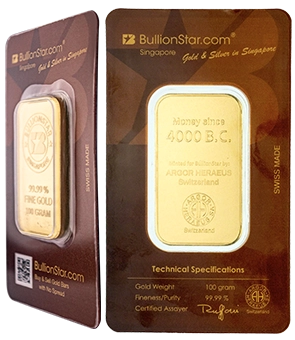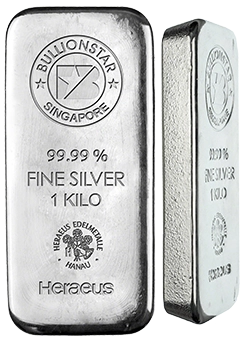Rectifying Chinese Gold Trading Rules
I’ve found more detailed rules on the workings of the Chinese gold market regarding, (i) the use of onshore renminbi for contracts traded on the Shanghai International Gold Exchange (SGEI), (ii) gold sales of Chinese domestic gold mines. Previously I’ve written posts on these subjects that contained inaccurate information that I would like to correct. (My previous posts are already corrected.)
First, let’s have a quick look at the latest Shanghai Gold Exchange (SGE) withdrawal numbers. In week 22 (June 1 – 5) withdrawals came down 12 % from the week before at 32 metric tonnes. Year to date 1,015 tonnes have been withdrawn. The current downtrend is completely normal as seasonally the summer months are quiet in the Chinese gold market, as opposed to the months around new year.
SGE Customers Can Use Onshore Renminbi For SGEI Contracts
Chinese citizens in the mainland that have an SGE account are allowed to use onshore renminbi to buy physical gold contracts on the Shanghai International Gold Exchange (also referred to as the International Board or SGEI). On May 30, 2015, I published a post on the current status of trading rules at the SGEI regarding the use of onshore renminbi by domestic traders. From a source at the SGE I was told domestic SGE members (banks, refineries, etc) can trade SGEI contracts using onshore renminbi, but domestic SGE customers (citizens, corporations) cannot. Afterwards I came in contact with an employee of the SGEI who told me this is incorrect, in reality both SGE members and SGE customers can use onshore renminbi to trade International Board contracts. I checked with a source at ICBC and he confirmed SGE customers can use onshore renminbi to trade SGEI contracts.
Related posts on this complicated subject are the ‘Chinese gold market essentials’ posts, The Mechanics Of The Chinese Domestic Gold Market, Chinese Gold Trade Rules And Financing Deals Explained and Workings Of The Shanghai International Gold Exchange | Part One.
Important to understand is that if SGE customers buy SGEI contracts they own gold stored in the Shanghai Free Trade Zone (offshore), but they’re not allowed to withdraw this gold and/or transport. Likewise if SGEI members purchase SGE contracts (in the mainland) they’re not allowed to withdrawal and/or transport.
This is the corrected segment from my post May 30, 2015:
Since September 2014 international traders can use offshore renminbi to trade all contracts on the International Board and most contracts on the Main Board (they can only withdraw gold from International Board contracts stored in the Shanghai FTZ). Domestic traders can trade all Main Board contracts and International Board contracts. Although, only a few Chinese banks – to my knowledge ICBC and China Industrial Bank – offer domestic clients SGEI brokerage to use onshore renminbi to trade International Board contracts.
Have a look at the next table for an overview. Kindly note, delivery is not the same as withdrawals (/load-out).
In my previous post I quoted Wang Lixing (also known as Roland Wang, Managing Director China for the World Gold Council) saying:
China’s domestic investors still cannot conveniently participate in trading on the International Board. Key reason is control on foreign exchange, which the International Board requires the use of the offshore renminbi.
Now I know SGE customers can also use onshore renminbi on the International Board I disagree with Wang even more.
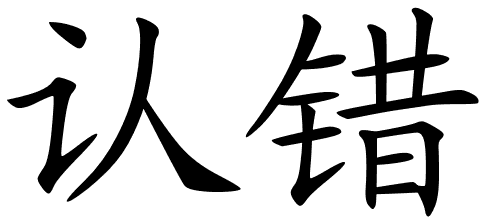
Not All Chinese Domestic Mining Ouput Is Required To Be Sold Through The SGE
A few years ago I’ve written, “all output from Chinese mines is required to be sold though the SGE", based on the rule:
All PRC [People’s Republic of China] gold producers are … required to sell their standard gold bullion through the Shanghai Gold Exchange…
Later I found out what standard gold bullion encompasses in the Chinese gold market; gold bars of 50g, 100g, 1Kg, 3Kg or 12.5Kg, with a purity of Au9999, Au9995, Au999 or Au995. Meaning, not all output from Chinese mines is required to be sold through the SGE, only when doré/ore is refined into standard gold bullion it’s required to be sold through the SGE.
In my opinion this rectification is not a game changer. Because the SGE has the best liquidity in the Chinese domestic gold market miners want to sell through the SGE, so they mostly cast standard gold bars to sell.
Mining output and scrap supply can be refined into standard gold bullion or non-standard god bullion, if standard gold is traded over the SGE or SHFE it’s exempt from VAT. Standard gold traded off-SGE is not exempt from VAT. Non-standard gold (for example jewelry) traded off-SGE is exempt from VAT (if there is value added, the value added would enjoy VAT), but many buyers and sellers like to trade standard gold bullion over the SGE for the liquidity and because this gold is granted of the highest quality.
Imported gold can be standard gold bullion or non-standard gold bullion (like doré). Imported standard gold is required to be sold though the SGE. I’m not sure at this stage what the rules are for imported doré/ore, though I know much of it is refined into standard gold and sold through the SGE. (It’s likely the rules for imported gold are the same for domestically mined gold.)
In short, there are many incentives that drive supply in the Chinese domestic gold market to be sold through the SGE. Hence, SGE withdrawals (the demand side) is such significant data.
The author of this post would like to have lunch some time with the architect of the Chinese domestic gold market, but doesn’t yet know who this person(s) is.
Popular Blog Posts by Koos Jansen
 China’s Secret Gold Supplier is Singapore
China’s Secret Gold Supplier is Singapore
 Audits of U.S. Monetary Gold Severely Lack Credibility
Audits of U.S. Monetary Gold Severely Lack Credibility
 China Gold Import Jan-Sep 797t. Who’s Supplying?
China Gold Import Jan-Sep 797t. Who’s Supplying?
 The Gold-Backed-Oil-Yuan Futures Contract Myth
The Gold-Backed-Oil-Yuan Futures Contract Myth
 Estimated Chinese Gold Reserves Surpass 20,000t
Estimated Chinese Gold Reserves Surpass 20,000t
 Did the Dutch Central Bank Lie About Its Gold Bar List?
Did the Dutch Central Bank Lie About Its Gold Bar List?
 PBOC Gold Purchases: Separating Facts from Speculation
PBOC Gold Purchases: Separating Facts from Speculation
 U.S. Mint Releases New Fort Knox Audit Documentation
U.S. Mint Releases New Fort Knox Audit Documentation
 China Net Imported 1,300t of Gold in 2016
China Net Imported 1,300t of Gold in 2016
 Why SGE Withdrawals Equal Chinese Gold Demand and Why Not
Why SGE Withdrawals Equal Chinese Gold Demand and Why Not






 Koos Jansen
Koos Jansen